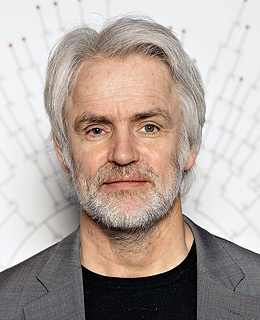
Dr. Kari Stefansson
Like many other Icelanders, neurologist Kari Stefansson can trace his lineage back to a single Viking, and that got him thinking about the genetic roots of disease. Stefansson, 58, had been a professor at Harvard from 1993 to 1996 when he decided to return to his birthplace, Reykjavík, to start deCODE Genetics, one of the first commercial ventures to dive into population-based molecular genomics. Stefansson's ambitious goal was to develop new tests and treatments for the masses.
The more homogeneous a population is, he believed, the more similar its members' genetic profiles, which translates to similar risk for certain diseases and similar reactions to the drugs used to treat those ills. Iceland's population has remained a tight genetic circle, making it an ideal place for deCODE to gather vast amounts of DNA to study the genetic characteristics of diseases. More than 130,000 Icelanders, or about 65% of the adult population, have allowed deCODE to include their DNA in the historic database. So far, the company has identified 15 variants, each linked to a greater risk of one of a range of disorders, from asthma to diabetes, prostate cancer and stroke. In the case of prostate cancer, 13% of those with the cancer had a particular genetic variation; just 8% of Icelanders who did not develop cancer had the variant gene.
Stefansson's work could deepen our understanding of diseases that strike non-Icelanders. DeCODE scientists have found, for instance, that in African Americans, the presence of a variant gene associated with heart disease substantially increases the risk of a heart attack. That finding may lead to the development of new treatments. For now, deCODE boasts more promise than profit; translating findings into treatments will take time.